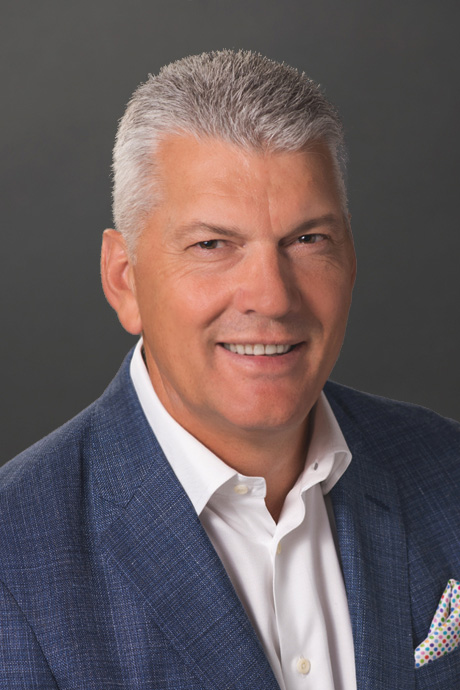PayPal’s Actions Convey Continued Expansion of Lending Business
July 27, 2018PayPal announced its Q2 2018 earnings yesterday. Notably, total payment volume grew 27%, which is 1% higher than Q2 of last year. And the popular payment app Venmo, which is owned by PayPal, grew 78%, only slightly less than its growth of 80% from the last quarter. As expected by Wall Street analysts, revenue growth lagged total volume growth as Venmo is still largely unmonetized.
PayPal demonstrated continued commitment to its online lending division, PayPal Working Capital, when last month it made a significant investment in LendUp, a startup that offers loans to subprime consumers. This follows PayPal’s September 2017 acquisition of Swift Financial, for $183 million.
In yesterday’s Q2 earnings conference call, PayPal CEO Dan Schulman spoke about the company’s consumer lending division, PayPal Credit. He said that the company has strengthened its partnership with eBay by signing an agreement to extend its long-standing consumer financing offer to eBay’s marketplace.
“With this agreement,” Schulman said on the conference call, “eBay will continue to accept and promote PayPal Credit through 2025.”
As PayPal continues to grow both PayPal Credit and PayPal Working Capital, it does have the advantage of strong name recognition. After all, it started back in 1998 as one of the first major websites on the internet. To emphasize this, during the conference call, Schulman cited a recent ComScore study that reported that 52% of mobile consumers said they made more online purchases because PayPal was offered. And one-third of all PayPal mobile customers surveyed said they will abandon a purchase if PayPal is not offered as a checkout option.
Notorious Tampa Bay Loan Broker Likely Headed Back to Jail
July 27, 2018 Tampa Bay loan broker Victor Clavizzao pleaded guilty this week to one count of wire fraud, which could land him in prison for up to 20 years. This would not be his first time behind bars. In 2009, a federal judge sentenced him to five years for conspiring to fraudulently obtain nearly $6 million in mortgage loans.
Tampa Bay loan broker Victor Clavizzao pleaded guilty this week to one count of wire fraud, which could land him in prison for up to 20 years. This would not be his first time behind bars. In 2009, a federal judge sentenced him to five years for conspiring to fraudulently obtain nearly $6 million in mortgage loans.
This time, Clavizzao, 55, cheated a church congregation out of $16,350 that they had set aside to build a new church. According to a Tampa Bay Times story, shortly after leaving prison in 2014, Clavizzao was still on probation when he created Key Business Loans. Around the same time, he met husband and wife, Sam and Minnie Wright. Minnie Wright is the pastor of the Tampa Bay-area New Testament Outreach Holiness Church #2, and she asked Clavizzao if his company would be able to make a loan to their church.
According to the Tampa Bay Times story, Clavizzao said “Absolutely.”
Clavizzao, who used the named Victor Thomas, ingratiated himself with the Wrights and other church congregants and told them that not only could he help them obtain a $650,000 loan, he could also handle the purchase of the plot of land along with other details. The church gave Clavizzao a series of initial payments – for an architect and for an environment inspection of the land – and when the Wrights started getting suspicious, Clavizzao disappeared.
Last year, suspected of defrauding the Wrights and others, Clavizzao told Tampa Bay Times in a phone interview that his business, Key Business Loans, was completely legitimate.
“Knock yourself out, I’m not doing anything wrong,” he said, acknowledging that he discloses his criminal history to prospective borrowers. “Any person who has a problem about my past can choose to do business with me or not do business.”
In July of 2014, Clavizzao presented the Wrights with a “Proposal Letter for Guaranteed Business Purchase Loan” from Key Capital Commercial Funding, a New York City-based company he said he had ties with. The proposal outlined the terms of a 15-year, $650,000 loan at 5.1 percent interest. The Wrights signed it. However, what the Wrights did not know at the time was that there was no Key Capital Commercial Funding in New York City, or anywhere else.
In part because of persistent reporting on Clavizzao from Susan Taylor Martin at Tampa Bay Times, the Wrights were able to learn more about Clavizzao’s criminal past and the FBI got involved.
After Clavizzao’s recent guilty plea, he is currently out on bond pending his sentencing. A date has not been set.
Oakmont Capital Services Follows Top Talent to Minnesota
July 26, 2018
Yesterday, Oakmont Capital Services announced that it had hired 11 equipment finance veterans to staff its new office in Albany, Minnesota.
All of the new hires were previously working in the Equipment Finance division of Stearns Bank, a regional bank headquartered in Minnesota with retail bank locations throughout the state and in Arizona and Florida. Among banks with $2 to $10 billion in assets, Stearns Bank was named the top performing bank by American Banker for 2017 and 2018. The American Banker noted last year the bank’s expertise in equipment financing. Stearns Bank also received the number one ranking for top-performing community bank in the country from ICBA Independent Banker magazine in its May 2017 edition.
“I’m most excited about the depth of the knowledge base of the people we brought on,” said Founder of Oakmont, Joe Leonard, in reference to the new hires.
Leonard told deBanked that Oakmont was looking to expand all along, but the decision to locate its new office in Minnesota was largely based on the group of talent that became available from Stearns Bank. Leonard said there was management change at Stearns Bank, but that the bank still has a robust equipment finance team.
Oakland does equipment finance for the transportation, construction and medical industries, among others. It also provides working capital loans for business acquisitions, commercial real estate, debt consolidation, bridge Loans and export financing. Oakmont can make working capital loans from $300,000 to $20 million.
Leonard said that the bulk of Oakmont’s business is commercial equipment financing and SBA loans. And business is derived almost exclusively from referrals from equipment dealers and manufacturers.
The new hires include Daryn Lecy, who will serve as Vice President of Operations. He has experience helping to grow a portfolio from $140 million to $1.2 billion. He also has experience co-managing over 150 equipment finance employees. Lecy will be responsible for managing Oakmont’s new Minnesota office.
Jim Peach will be Vice President of Sales, Kayla Perling, Syndication Manager, Mikki Henkelman, Credit Manager, Tracey Elfering, Business Development Coordinator, and Jena Dirkes, Channel Development Officer. Chad Primus, Elise Linn, Jayme Gerads, Molly Sand and Michael McElroy will all serve as business development officers.
Founded in 1998, Oakland has its headquarters in West Chester, Pennsylvania. With the Minnesota office, it now employs roughly 40 people.
Crowdfunding Legal Limit Too Low for Intended Beneficiaries
July 25, 2018 Regulation Crowdfunding (Reg CF), a regulation that grew out of the Jumpstart Our Business Startups (JOBS) Act of 2012, was designed to allow non-accredited investors to invest relatively small amounts in startups. But the regulation seems not to be serving its purpose, according to people in the fintech investment community.
Regulation Crowdfunding (Reg CF), a regulation that grew out of the Jumpstart Our Business Startups (JOBS) Act of 2012, was designed to allow non-accredited investors to invest relatively small amounts in startups. But the regulation seems not to be serving its purpose, according to people in the fintech investment community.
Why is this? Because the maximum amount that can be raised in a single year under Reg CF is limited to $1,070,000.
“I’ve had clients consider [using] Reg CF, but when they see that they can only raise $1 million, they say it’s not worth the trouble,” said James P. Dowd, CEO of North Capital, a Salt Lake City-based broker-dealer that helps private companies raise money.
“I’m not anti-regulation at all, but if the reward is not there, people won’t go through the trouble,” Dowd said. “Let’s have regulations that are appropriate for the need.”
Dowd said that a small startup seeking funding for a series A round is typically looking to raise around $10 million. The $1.07 million cap for Reg CF is therefore inadequate. A startup’s other options for raising money under the JOBS Act include regulations D, S and A+. Dowd said that Reg D is the most common. It involves very little paperwork and is less expensive compared to other options. Reg S applies only to offshore investors and Reg A+ makes sense only if the startup is looking to raise $20 million or more because this option is costly to file.
All of these options require that investors be accredited, which translates to investors being wealthy. (Accredited investors must have a net worth of at least $1,000,000, excluding the value of one’s primary residence). On the other hand, if an entrepreneur opts to raise money through a Reg CF, investors need not be accredited, although there are still restrictions on how much they can invest, given their income.
Reg CF allows entrepreneurs to access a wider pool of investors. And Dowd, along with others in the investment community, believe that the current $1.07 million annual cap should be raised to as high as $20 million to satisfy the need of entrepreneurs who are looking to raise more money.
“The infrastructure for the crowdfunding industry has been tested and is ready to expand,” said Douglas S. Ellenoff, partner at Ellenoff Grossman & Schole who is an expert on crowdfunding.
Ellenoff said that there was much fear among regulators following the 2012 JOBS Act that crowdfunding would be ripe for fraud. But the fraud didn’t happen. He believes in raising the Reg CF cap to allow the crowdfunding industry to mature. And he believes that once the cap is raised, more substantial companies will start to use crowdfunding which further legitimate it as a valid way of raising money.
North Capital was founded by Dowd in 2008 and provides an array of financial advisory services to its clients. In addition to its Salt Lake City headquarters, it also has offices in Benicia, California and McAllen, Texas.
Snapchat to Terminate Payment Service Snapcash (And its x-rated subculture?)
July 24, 2018 Snapchat will be terminating its payment service platform, Snapcash, on August 30. Launched in 2014, Snapcash allows users to send money to each other (via a cash app) in a fast and free way. Money goes to users’ bank accounts that are linked to their debit cards and the payment processing is handled by Square.
Snapchat will be terminating its payment service platform, Snapcash, on August 30. Launched in 2014, Snapcash allows users to send money to each other (via a cash app) in a fast and free way. Money goes to users’ bank accounts that are linked to their debit cards and the payment processing is handled by Square.
“Snapcash was our first product created in partnership with another company – Square,” a Snapchat spokesperson told Techcrunch in a statement. “We’re thankful for all the Snapchatters who used Snapcash for the last four years and for Square’s partnership!”
Snapchat’s decision to discontinue the payment service may come because of steep competition from Venmo, PayPal, Zelle and Square Cash, which all specialize in payments. But Snapcash may also be a liability for the company since it’s reportedly been used for X-rated activities. When Snapcash was first introduced, a story on Motherboard suggested that it would enhance Snapchat’s lingering subculture of amateur pornography. By the following year The New York Times reported that although the payment activity attributed to such pursuits was small, both strippers and adult video stars (male & female) were indeed using the service to charge users for personalized photos.
Although Square’s partnership with Snapchat will be coming to an end, Square made it clear in a statement to Techcrunch that its peer to peer Square Cash product is still alive and well with more than 7 million monthly customers.
It is unclear if the phase-out of Snapcash will result in job cuts at the company. But Snap Inc., which owns Snapchat, already laid off about 200 employees in March of this year. The company went public last year on the New York Stock Exchange as SNAP. Snap Inc. also has a hardware division called Spectacles, which sells sunglasses with a camera in it. According to a Cheddar story today, the chief of Spectacles, Mark Randall, has left Snap Inc. to start his own company.
Snap Inc. was founded by in 2011 by CEO Evan Spiegal, Bobby Murphy and Reggie Brown. The company is headquartered in Los Angeles.
nCino Partners With Santander
July 24, 2018
nCino partnered with Santander Bank last week, its latest in a string of partnerships with major banks.
“Innovative institutions such as Santander Bank understand the importance of ensuring the customer experience is as fast, easy and intuitive as possible,” said Pierre Naudé, CEO of nCino. “[Santander] also recognizes that a shiny front end means nothing if the middle and back office doesn’t embrace at least the same degree of automation and intelligence.”
nCino is a cloud-based lending platform that grew out of Wilmington, North Carolina-based Live Oak Bank in 2012. Its founder, James Mahan III, then CEO of Live Oak Bank, along with his team, recognized a need to make the commercial lending process less time-consuming. So they created the nCino Bank Operating System internally for Live Oak Bank. But it soon attracted the interest of other financial institutions, in the US and beyond.
Last year, nCino told deBanked in that in addition to working with Live Oak Bank, it was working with more than 150 other financial institutions in multiple countries, including nine of the top 30 US banks. Now, according to the nCino website, over 200 banks and credit unions of varying sizes use the company’s Bank Operating System. TD Bank and SunTrust are among their largest bank partners.
An nCino spokesperson told deBanked that its Bank Operating System is sold on a subscription-basis that is driven by individual annual user licenses. This allows employees, executives and other stakeholders of a financial institution to access the benefits and functionality of nCino’s solution. nCino spun off from Live Oak Bank and became its own entity in 2014. Separately, Live Oak Bank (NASDAQ: LOB) went public in 2015.
 Santander will be using nCino’s platform for its business banking clients. Santander says that nCino’s cloud-based platform is accessible to customers from any device and will reduce the time it takes Santander to deliver loan decisions from start to finish by approximately 40 percent. In conjunction with a partnership with Accenture, Santander will be using nCino’s platform to help with customer relationship management, loan origination, account opening, workflow, enterprise content management, and instant reporting capabilities.
Santander will be using nCino’s platform for its business banking clients. Santander says that nCino’s cloud-based platform is accessible to customers from any device and will reduce the time it takes Santander to deliver loan decisions from start to finish by approximately 40 percent. In conjunction with a partnership with Accenture, Santander will be using nCino’s platform to help with customer relationship management, loan origination, account opening, workflow, enterprise content management, and instant reporting capabilities.
“Respecting our customers means giving them more insight into the loan process and getting them their money faster without any impediments so they can focus on running their businesses,” said Amir Madjlessi, Executive Vice President and Managing Director of Business Banking at Santander. “nCino’s platform automates the lending process from start to finish in a way that ensures a seamless, transparent experience for our customers that reduces delays and inefficiencies and securely connects our clients to our bankers whenever they need them with the touch of a button.”
nCino employs 500 people and is headquartered in Wilmington, North Carolina. The company recently opened an office in London and has plans to open additional offices in Australia and Canada later this year, according to a company spokesperson.
BCFP Launches Regulatory Sandbox for Fintech Companies
July 23, 2018
Mick Mulvaney, the Acting Director of the Bureau of Consumer Financial Protection (Bureau), told The Wall Street Journal last week that the Bureau has launched a “regulatory sandbox” to help fintech firms develop new products and services.
A regulatory sandbox is a framework set up by a regulator that allows certain fintech companies to conduct experiments for innovative products under the supervision of the regulator. The launch of this BCFP regulatory sandbox coincides with the hiring of Paul Watkins last week as Director of the Bureau’s new Office of Innovation.
It would seem no coincidence that Watkins was chosen to direct this new office at the Bureau because he had been in charge of fintech initiatives at the Attorney General’s Office in Arizona, the first state to create a regulatory sandbox earlier this year. Illinois is the process of creating a regulatory sandbox. And state banking regulators in New England spoke to deBanked last year about the possibility of a regional regulatory sandbox. According to an American Banker story, the model for the sandbox follows a 2014 initiative in the UK called Project Innovate, designed to promote competition while focusing on consumer interests. Currently, regulatory sandboxes have been implemented in other countries, including Abu Dhabi, Australia, Canada, Denmark, Hong Kong and Singapore, according to the New York University Journal of Law and Business.
Regulatory sandboxes are controversial. Before the Arizona bill passed allowing for the creation of the regulatory sandbox, a number of consumer advocacy groups protested, including the Southwest Center for Economic Integrity, Arizona Community Action Association, Children’s Action Alliance, and Protecting Arizona’s Family Coalition. These groups believe that the regulatory sandbox is simply a way of allowing fintech companies to bypass regulations at the expense of consumers.
Mulvaney wouldn’t agree. “You can make a strong argument…that new technology actually offers new and innovative ways to protect consumers,” Mulvaney said in The Wall Street Journal story.
Elevate Offers Prime-like Credit Card to Non-prime Consumers
July 23, 2018Last week, Elevate (NYSE: ELVT) launched the Today Card, a credit card for non-prime consumers with features typically included only on cards for prime users. Some of the features for the new card include credit lines up to $3,500, a mobile app where consumers can check their balance, pay their bills, zero liability fraud protection, fraud alerts, and a credit score monitor that allows consumers to view their credit score and monthly credit reports. Elevate’s Today Card is being issued by the Capital Community Bank of Utah and powered by Mastercard.

“We’ve found that non-prime consumers lacked credit card options that provide ease of use and functionality,” Jason Goldberg, Today Card General Manager, told deBanked. “We saw a need to bring a product with a prime customer experience, features, and benefits, coupled with larger credit lines to this segment. Our experience in underwriting, product design, and marketing to non-Prime consumers allowed us to thoughtfully and quickly bring this product to market in partnership with Capital Community Bank of Utah and Mastercard.”
This partnership of a fintech company with a community bank and a credit card payment network is part of a growing trend which was the central topic of a PwC study published last year. The report found that 82% of large participants in the banking industry expect to increase partnerships with fintech companies over the next three to five years.

“We are proud to be partnering with Capital Community Bank of Utah and Mastercard for this new product as we believe fintech and bank partnerships are the way of the future and important for fintech’s long-term success,” said Ken Rees, CEO of Elevate.
Elevate’s focus is to provide non-prime consumers with greater access to credit. One of the company’s more popular products is RISE, led by Tony Leopold, which provides unsecured installment loans and lines of credit to consumers with low credit who are often turned away by traditional credit providers. Elastic is another popular product under the Elevate umbrella that is designed for unexpected expenses. Elastic is a bank line of credit that makes it easy to access money as soon as the following business day.
Elevate went public on the New York Stock Exchange in April of last year. The company was founded in 2014 and is headquartered in Fort Worth, Texas, with offices in Dallas and San Diego in the US and in London and Bury St. Edmunds in the UK. The company employs 650 people worldwide.






























